Norman's Blog
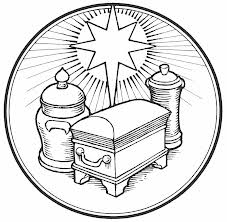
EPIPHANY
It had been a busy Christmas so it was nice to sit quietly in Church again after all the buying and wrapping of presents and the posting of Christmas cards.
It was a good service. We heard again how the Wise men brought their gifts and then the Minister told us how we should use our gifts to help others. After that we prayed for all the people who were suffering and then we sang: 'Good Christians all rejoice!'
Yes, it was a good service, but the thought of all those people suffering in the world didn't seem a very good reason for rejoicing. Had I missed something really important? Then we came to the last line: 'O that we were there!' Perhaps we had to be there to understand – but was that possible?
As the lights and the pillars faded I found myself standing in front of a small terraced house. I knocked and a young woman opened the door.
"Would you like to see the baby?" she asked.
She took me into a small bedroom. In the corner, on bare floorboards, was a large wooden box supporting a carry-cot. I bent over the cot and looked at the baby. He was beautiful.
"I'm afraid I didn't manage to get him a present." I said, then I put my finger out to him and he held on to it with his tiny hand.
"He doesn't want a present," said his mother. "It's you he wants!"
I looked at the baby again and an agonising pain, full of joy and sadness, of emptiness and longing, spread through my body. I couldn't stay there any longer nor could I find any words to say. I touched his mother's arm gently as I passed her, then went out into the street.
When I was out of sight I leant against a wall and I wept – for the joy and the pain was more than I could bear.
NV – Sunday 5th January 2014
ADVENT 2013
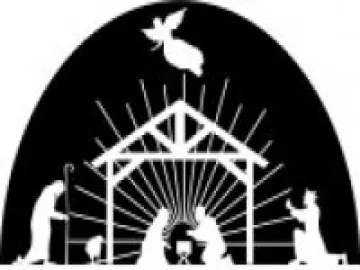

Oh Christ
From this world of darkness
From this world of sadness
From this world of inhumanity and fear
We cry to you.
For you alone are the love of the world,
You alone are the light of the world,
You alone are the bringer of joy
Yet servant to all.
Come to each one of us.
Be born in each one of us.
Not in the town of Bethlehem,
(For that is now a distant dream,)
But deep within our hearts
That we, like Mary,
May give birth to you
The holy, living child,
The Son of God
N.V.
- --------------------------------------------------------------
HAPPINESS
Ken Dodd, who is well known for spreading a great deal of happiness, had his own special theme tune with each verse ending with the chorus:
[ {Happiness, happiness, the greatest gift that I possess.
I thank the Lord that I've been blessed
With more than my share of happiness.}]
We love to be happy and happiness is something that we all look for in our lives but what is happiness and how can we find it? This is not perhaps such an easy question to answer because, if we were to ask a number of different people what they understood by happiness, we would probably get many different answers.
A baby might say, if it could talk, "Happiness is a warm tummy!" because, if we watch a baby feeding, we can see by the constant movement of its fingers and its toes that the joy of drinking warm milk floods every part of its body.
A young child might say: "Happiness is making sandcastles on the beach!" for most of us can remember those glorious summers when we were children and how wonderful it was to be alive. Then a Teenager might say: "Happiness is clubbing or being with my mates!" Like them, most of us too will have experienced the happiness that comes with making a special relationship with a particular person.
But, as life goes on, we often experience happiness in different ways as we settle down with a partner and later, perhaps, through bringing up children. We may even find moments of happiness when we are with our friends or when watching or taking part in a particular sport. Then again, we may discover happiness through a special interest or hobby or, as we grow older, we may discover new forms of happiness in simple companionship or even in the contentment of our own surroundings.
However, it is rarely that we find happiness just by looking for it because, as Henry Thoreau wrote nearly two hundred years ago.
"Happiness is like a butterfly: the more you chase it, the more it will elude you. But if you turn your attention to other things, it will come and sit softly on your shoulder."
When we consider the importance of happiness in our own lives we might also say:
"Is it right that we should we be happy while other people are suffering? Is it right for us to enjoy happiness and contentment while thousands of men, women and children across the world are starving? Should we be happy while other nations are suffering the dreadful consequences of earthquakes and tsunamis or are being killed in tribal or international conflicts?"
These are very difficult questions but I am sure that, in spite of the dreadful problems that face so many people in the world, it is important that we should enjoy our periods of happiness whenever we can because they are such an important part of our human experience. What is important is that we should not spend our time trying so hard to find happiness for ourselves that we become less sensitive to the needs of others. The continual desire to satisfy our personal need for pleasure can have devastating effects; particularly when we try to fill our lives with music, computer games and smart phones and all that passes today for entertainment to such an extent that we do not have time to think about the needs of others. It does not seem such a difficult thing to do but there are times when all of us are guilty of putting ourselves first.
[{As we walk through the World
Many hands clutch at our coats;
Many voices speak to us
In chilling tones.
We, who would gladly feed the world,
Fill our trolleys with exotic food.
We, who would help the poor and needy,
Choose for ourselves the latest microwave.
We, who would clothe the naked,
Spend all we have on our adornment.
Twenty pence for a starving child
But fifty pence for an ice cream
Yes – we weep when dying hands stretch out to us
Pleading for help
But still we seek to cushion our old age.
We say one thing and do another
Because our hearts are cold.
May we, instead, be filled with love
For those who suffer}]
Then – we will find true happiness.
Knocking on doors
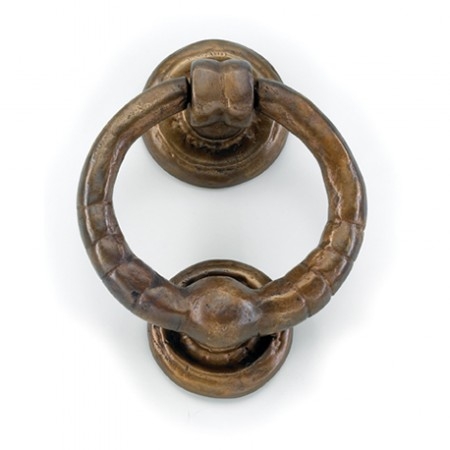
Knocking on doors
Quite recently I heard about a man who saw a young boy trying to reach the knocker on someone's front door. As it was was too high for the little boy to reach, the man went up to the door and banged the knocker for him to which the young boy said. "Thank you Sir! Now run as fast as you can!"
This game, known as Knock Down Ginger, was a game that dates back to the 19th Century and involves either knocking on the front door or ringing the door bell then running away before the door can be answered and I must confess that, as a young boy, I sometimes played it myself.
This memory made me think of all the people who have knocked at my front door and the reasons why they have done so.
(Rat tat tat) "Good morning Sir, can I interest you in double-glazing?"
(Rat tat tat) "I notice that your front drive is pretty bad. If you like I could tarmac it for you at a very reasonable price."
(Rat tat tat) "I represent your local prospective M.P. can we rely on you for your support in the next election?
(Rat tat tat) "I think my daughter has an ear infection. Could your wife come round and have a look at it?
(Rat tat tat) "Would you like to have a booklet about God's plan for the world?
(Rat tat tat) "Would you sponsor an orphan child in Zimbabwe?
(Rat tat tat) "Would you speak at our local Mothers' Meeting?
And so it goes on. I think one can safely say that whoever it is that is calling usually wants, either your help, your time, your support or your money. I can never remember a time when someone called with the offer of a free gift.
There is a beautiful painting by Holman Hunt of Christ, carrying a lantern and knocking on a door which can only be opened from the inside.
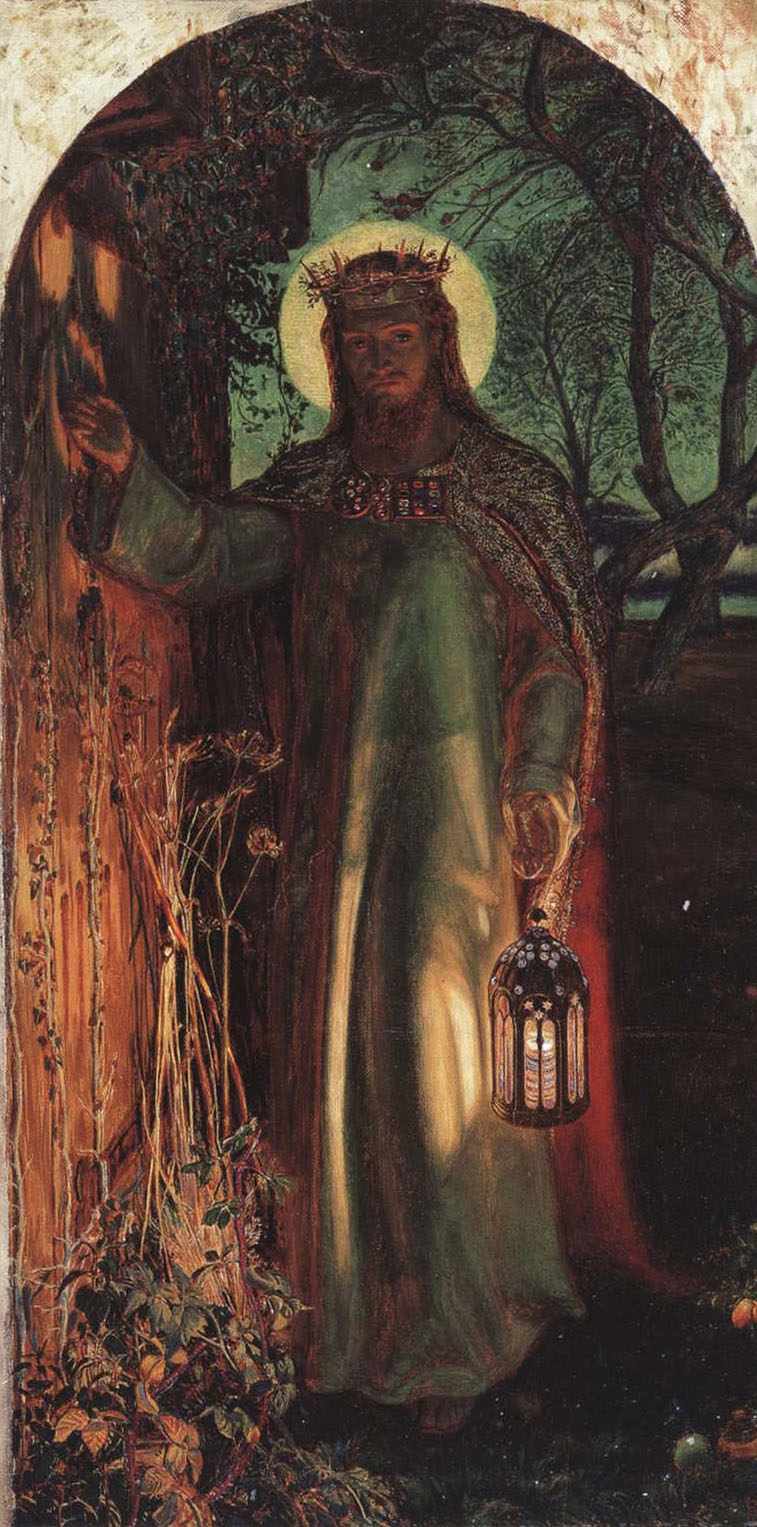
The painting is called "The Light of the World" and is based on the reading from the third chapter of the book of Revelation where Jesus says:
Behold, I stand at the door, and knock: if any man hear my voice, and open the door, I will come in to him,
I am sure that it is only right for us to ask him, as we would ask anyone who called on us, what it is that he wants from us.
I wonder how Jesus would answer that question?
Perhaps he would say, as he said in St John's Gospel, that he has simply come to give us new life. A life that thinks less about our own needs because it is full of love for all that surrounds us; a life that gives us the wisdom to understand that other people matter and often need our help and support. A life that makes it possible for us to look out into the world with a new compassion towards all those who need our help.
When he knocks on our door, he has not come not ask us for advice, he has not come to ask us for money, He has not come to ask us for anything – only that we let him into our lives so that he can give us the greatest gift of all – the gift of sharing in his love and his goodness.
In the 14th chapter of St John's Gospel Jesus says:
{[If a man love me, he will keep my words: and my Father will love him, and we will come to him, and make our dwelling with him.
]}
But when he says: "Behold I stand at the door and knock." How are we going to react? Will we say:
"I know very well that you are waiting there
But I haven't the will to get up from my chair
When you stand at the door and knock
Or, when he knocks, will we rush to open the door and invite him in?
If we do, our lives will be changed forever?
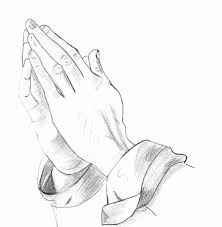
PRAYER
Prayer is not an easy subject to talk about because prayer, which can take many different forms, can also mean very different things to different people.
There is the lovely story of the Vicar who forgot to invite one of his parishioners to the Church Summer Fete. When he called on her to apologise she said: It's too late now Vicar – I've already prayed for rain! Did she really believe that it was right to ask a God of love to punish someone who had offended her?
Then there is the famous family prayer:
"God bless me and my wife, My son and his wife. Us four and no more!"
Perhaps we could call this a tribal prayer or simply "Family First!"
There are probably moments too in all of our lives when , in absolute desperation, we want to cry out "O GOD I need your help because I don't know how to deal with this difficult situation!", and it is right for us to ask for help.
But prayer cannot be confined to our own personal needs – it must encompass something very much wider. In the Lord's Prayer, the very first word, tells us what we should be praying for. It doesn't begin with the words "My Father" but rather the words "Our Father" so that, from the very beginning , we are reminded that our prayers are not only for ourselves. As Lewis Maclachlen, a Presbyterian Minister, said in his book "21 Steps to Positive Prayer"
"Prayer is never only for ourselves. It is a window opening on heaven through which light, truth and, above all, love can pour through."
In our prayers do we see God as a being in some distant heaven or as, in the words of the hymn, as we
strain to glimpse his mercy seat
We find him kneeling at our feet.
We find him kneeling at our feet and sharing with us in the disasters and the sadnesses of our lives. We have all met him because it is his hand which reaches out to us when we are in despair. He is the one who knocks on our door and says: "I hear you haven't been well. Is there any way that I can help?" And it is he who is present in those who give us their time in the lowest moments of our lives.
That God dwells in highest heaven, I do not question, but I know too that he is alive in the world because I have met him in the town. I have seen him in my friends and in all those who have shared with me their pain their sorrow and their despair as well as their joy at loving and being loved,
One of the greatest privileges in reading the Gospels is that we can be present when Jesus speaks to individual people; but we must also recognise the times when he speaks to us through those we love and those who love us or even through the mouths of strangers
I am always grateful that, when I was a child, I was given a very special prayer which ended with these words:
When I see and know God
In all loving people,
Only love can then fill me
For all that is round me.
When I see and know God in all loving people for when we love one another then God lives in us – for, wherever love is , God is there also for God is love.
"More things are wrought by prayer than this world dreams of" so:
come to my heart, Lord Jesus
There is room in my heart for Thee
HOLIDAYS
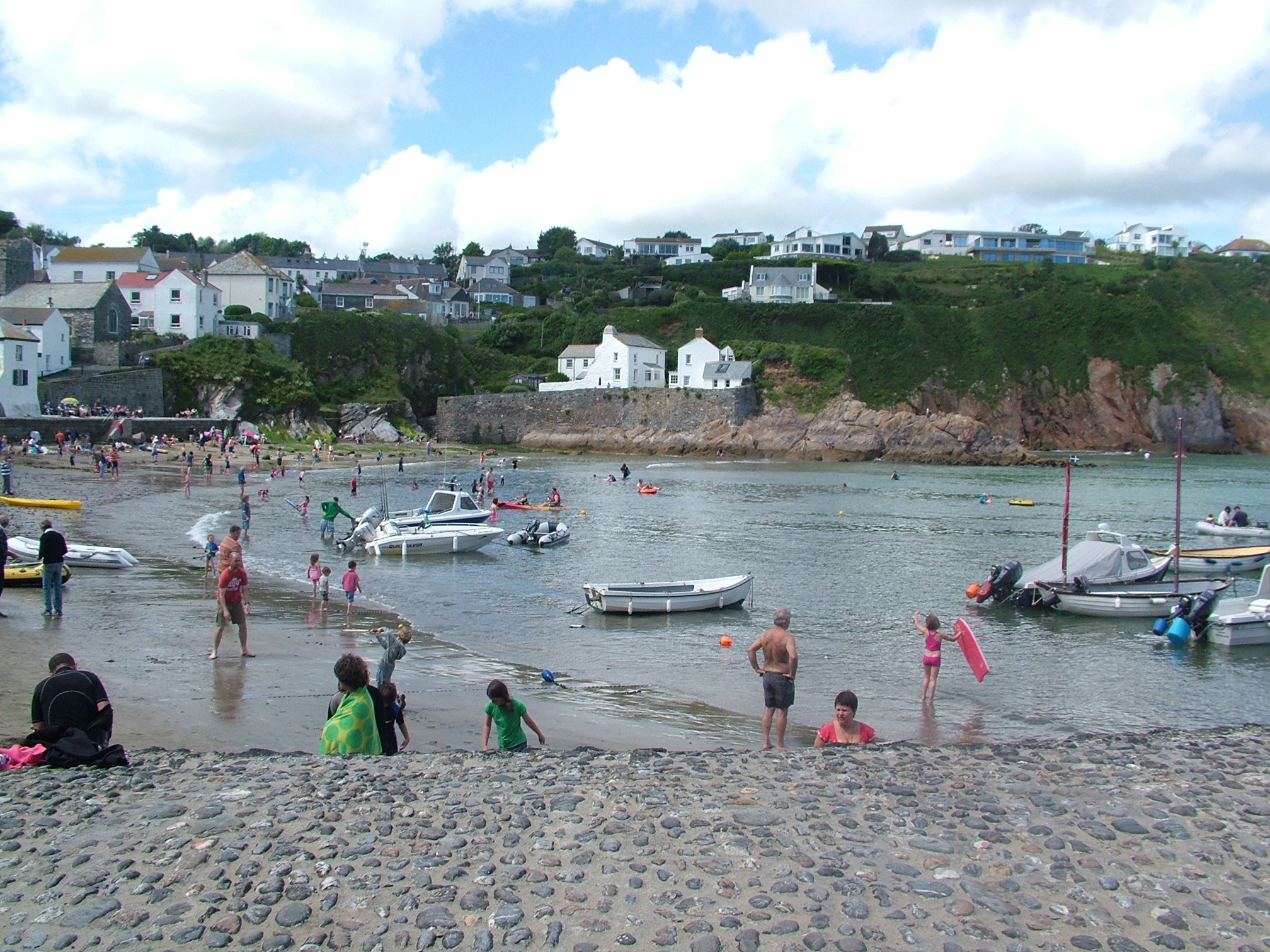
This is a time of the year when we often look forward to our summer holidays – perhaps we have planned to travel and to explore new places or just to lie on a sandy Mediterranean beach and feel the warmth of the sun. Of course holidays can be very important times in our lives as we enjoy new and different experiences and perhaps send postcards to our family and friends telling them what a wonderful time we are having but, holidays have not always been like this.
Today we tend to think of a holiday as a time when we can rest and unwind but the word holiday actually comes from an old English word haligdaeg, which means holy day and, in the past, a holiday was, if we lived in a Christian country, a time for celebrating a particular religious occasion such as Easter or Christmas. However, as time passed, more holidays were taken and these would often be associated with more worldly events such as Boxing Day when people would give small sums of money known as Christmas boxes to those who had served them throughout the previous year; then, added to this, were the various Bank holidays which were designed to give time off to those who spent most of the year working in banks or in offices
During the 17th Century, holidays were enjoyed mostly by the very wealthy who would travel the world on The Grand Tour. However, in the 19th Century, the Middle Class were also able to enjoy such journeys through the development of the railways and the work of Thomas Cook who organized Cook's Tours and, in the 1860s, arranged more affordable holidays to Switzerland, Italy, Egypt and the United States. Today of course, as we know, package holidays have become a much more common experience for many of us as they can be arranged simply through our local travel agent.
But what do we really expect from our holidays? Do we see them as opportunities to take a short break from our everyday lives or do we see them as opportunities for the development of ourselves as human beings in mind, body and spirit? Do we spend some of our holiday time in wondering just where our lives are going and whether we are doing anything to make the world a better place to live in? Do we wonder how much we ought to go without so that people in other parts of the world do not have to suffer as much as they do?
Of course it is good and right that we should relax and enjoy ourselves while we are on holiday so that our bodies are refreshed but it is also good for us to refresh our spirits. Perhaps we can do this by looking back over our lives and wondering how, when we return, we can help to spread a little more love by seeing other people as important as ourselves and by trying to restore broken relationships by caring as much for others as we care for ourselves. If we can find time to do this then each day will not only be a holiday but also a holy day for each one of us.

